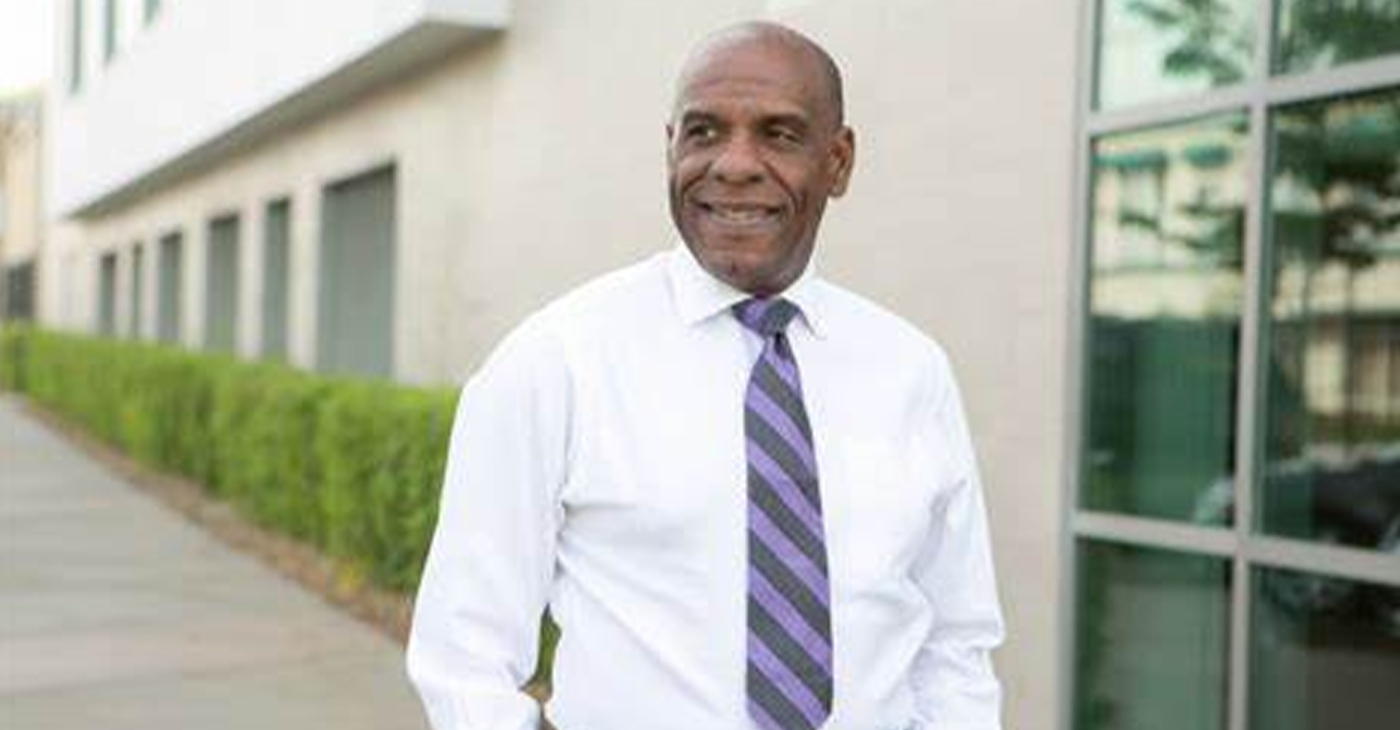Politics
In a Change from 2008, Clinton Talking Often about Race

In this July 23, 2015, photo, Democratic presidential hopeful Hillary Rodham Clinton speaks at a campaign event in Columbia, S.C. (AP Photo/Stephen B. Morton)
Bill Barrow, ASSOCIATED PRESS
GREENVILLE, South Carolina (AP) — In her second bid for the presidency, Hillary Rodham Clinton is discussing “systemic racism” and making the issue a hallmark of her campaign, as she looks to connect with the black voters who supported rival Barack Obama in 2008.
At multiple stops in South Carolina this week, the former secretary of state and current Democratic front-runner in the 2016 presidential campaign bemoaned “mass incarceration,” an uneven economy, increasingly segregated public schools and poisoned relations between law enforcement and the black community.
The former first lady praised South Carolina leaders, including Republican Gov. Nikki Haley, for removing the Confederate battle flag from statehouse grounds after a white gunman’s massacre of nine people at a historic black church in Charleston, but she warned that the act is only symbolic.
“America’s long struggle with racism is far from finished,” she said before a mostly white audience at a Greenville technical college. Hours earlier, with a majority black audience at a West Columbia church, she declared, “Anybody who says we don’t have more progress to make is blind.”
The bold approach, which also includes previous addresses on voting rights and the criminal justice system, is a contrast to her 2008 campaign, when she didn’t talk so directly about race as she faced off against Obama, who would go on to become the nation’s first black president. Instead, she ran as the battle-tested, experienced counter to the first-term U.S. senator from Illinois.
Clinton doesn’t frame her unabashed commentary in a political context; aides repeatedly explain her strategy as “working to win every vote” and nothing more. Yet it’s clear that Clinton feels no constraints, as perhaps she did eight years ago. It’s also no surprise that she prominently features the strategy in South Carolina. African-Americans make up about 28 percent of the population and a majority of the Democratic primary electorate, the first of the early-voting states to feature a significant bloc of black voters.
Obama trounced Clinton here in 2008, 56 percent to 27 percent, as many black voters flocked to his candidacy once he demonstrated white support in the Iowa caucuses and New Hampshire primary. That leaves Clinton to reverse a bitter primary defeat, while using South Carolina as a test run for a potential general election in which she would need strong black support to reassemble Obama’s coalition in states like Virginia, Florida and Ohio.
If Clinton’s approach is born of necessity, it also comes with potential pitfalls.
The complexities were clear within hours of her South Carolina stops, as social media users and commentators parsed her comments, including her statement that “for a lot of well-meaning, open-minded white people, the sight of a young black man in a hoodie still evokes a twinge of fear.” She made the observation that racism goes beyond public policy and into “the fabric of how people think and feel and act.”
Last month, she angered some activists by using the phrase “all lives matter” during a speech a few miles from Ferguson, Missouri, where Michael Brown died at the hands of a white police officer. Clinton used those words as part of an anecdote about her mother, whom she said taught her that “all lives matter,” but some activists thought it demeaned the significance of the “Black Lives Matter” effort.
Her Democratic rivals Martin O’Malley and Bernie Sanders drew similar outrage at the recent Netroots Nation convention. O’Malley, the former Maryland governor, ended up apologizing after snapping at hecklers: “Black lives matter. White lives matter. All lives matter.”
Clinton also faces questions about her advocacy for tougher sentencing laws that her husband signed as president. Bill Clinton recently expressed regret over the laws, but his wife stopped short of calling the laws a mistake.
“We were facing different problems in the ’80s and ’90s,” she told reporters, saying crime in cities “was causing an outcry across the nation,” including in minority neighborhoods. “I think now, 20 years on, we can say some things worked and some things didn’t work,” she continued. “One of the big problems that didn’t work is that we had too many people, particularly African-American men, who were being incarcerated for minor offenses.”
Clinton also must avoid any residue from Bill Clinton’s remarks during the 2008 campaign. After Obama won South Carolina, the former president, who remains very popular among black voters, dismissed the victory as akin to Rev. Jesse Jackson’s victory in 1988. A black South Carolina native, Jackson won the state’s caucus that year, but didn’t sustain the momentum.
___
Follow Bill Barrow on Twitter at https://www.twitter.com/BillBarrowAP.
Copyright 2015 The Associated Press. All rights reserved. This material may not be published, broadcast, rewritten or redistributed.
###
Activism
Oakland Post: Week of April 17 – 23, 2024
The printed Weekly Edition of the Oakland Post: Week of April 17 – 23, 2024

To enlarge your view of this issue, use the slider, magnifying glass icon or full page icon in the lower right corner of the browser window. ![]()
Barbara Lee
Congresswoman Barbara Lee Issues Statement on Deaths of Humanitarian Aid Volunteers in Gaza
On April 2, a day after an Israeli airstrike erroneously killed seven employees of World Central Kitchen (WCK), a humanitarian organization delivering aid in the Gaza Strip, a statement was release by Rep. Barbara Lee (D-CA-12). “This is a devastating and avoidable tragedy. My prayers go to the families and loved ones of the selfless members of the World Central Kitchen team whose lives were lost,” said Lee.

By California Black Media
On April 2, a day after an Israeli airstrike erroneously killed seven employees of World Central Kitchen (WCK), a humanitarian organization delivering aid in the Gaza Strip, a statement was release by Rep. Barbara Lee (D-CA-12).
“This is a devastating and avoidable tragedy. My prayers go to the families and loved ones of the selfless members of the World Central Kitchen team whose lives were lost,” said Lee.
The same day, it was confirmed by the organization that the humanitarian aid volunteers were killed in a strike carried out by Israel Defense Forces (IDF). Prior to the incident, members of the team had been travelling in two armored vehicles marked with the WCF logo and they had been coordinating their movements with the IDF. The group had successfully delivered 10 tons of humanitarian food in a deconflicted zone when its convoy was struck.
“This is not only an attack against WCK. This is an attack on humanitarian organizations showing up in the direst situations where food is being used as a weapon of war. This is unforgivable,” said Erin Gore, chief executive officer of World Central Kitchen.
The seven victims included a U.S. citizen as well as others from Australia, Poland, the United Kingdom, Canada, and Palestine.
Lee has been a vocal advocate for a ceasefire in Gaza and has supported actions by President Joe Biden to airdrop humanitarian aid in the area.
“Far too many civilians have lost their lives as a result of Benjamin Netanyahu’s reprehensible military offensive. The U.S. must join with our allies and demand an immediate, permanent ceasefire – it’s long overdue,” Lee said.
Community
Financial Assistance Bill for Descendants of Enslaved Persons to Help Them Purchase, Own, or Maintain a Home
California Legislative Black Caucus (CLBC) vice chair Sen. Steven Bradford (D-Inglewood) introduced new legislation related to reparations to the Senate Committee on Housing on April 2 in Sacramento. Senate Bill (SB) 1007, “establishes the Homeowner’s Assistance for Descendants of Enslaved Persons Program to make financial aid or assistance available to descendants for the purposes of purchasing, owning, or maintaining a home,” the legislation states.

California Legislative Black Caucus (CLBC) vice chair Sen. Steven Bradford (D-Inglewood) introduced new legislation related to reparations to the Senate Committee on Housing on April 2 in Sacramento.
Senate Bill (SB) 1007, “establishes the Homeowner’s Assistance for Descendants of Enslaved Persons Program to make financial aid or assistance available to descendants for the purposes of purchasing, owning, or maintaining a home,” the legislation states.
The Senate Housing Committee advanced the bill with an 8-1 vote. It will be re-referred to the Appropriations Committee for consideration.
Sen. Kelly Seyarto (R-Murrieta) was the only member who voted against the bill.
“SB 1007 is about starting a long process of paying back a debt that is not only owed, but that was also promised, and is 160 years overdue, to African Americans,” Bradford told the committee chaired by Sen. Nancy Skinner (D-Berkeley). “It is the first step in closing the wealth and equity gap created by centuries of slavery and racial discrimination policies.”
The bill aligns with one of the 115 recommendations listed in a two-year study conducted by the California reparations task force, of which Bradford was one of nine members.
Bradford said the report reveals that, in the state of California, a typical Black-owned home is 22% less valuable than a White-owned home.
Various advocacy groups from around the state attended the hearing held at the State Capitol Annex Swing Space. The California Housing Partnership, Bay Area Regional Health and Inequities Initiative, Coalition for A Just and Equitable California, Disability Rights of California, the American Civil Liberties Union of California, and California Community Builders all voiced their support of the bill.
-

 Activism4 weeks ago
Activism4 weeks agoOakland Post: Week of March 20 – 26, 2024
-

 #NNPA BlackPress3 weeks ago
#NNPA BlackPress3 weeks agoCOMMENTARY: D.C. Crime Bill Fails to Address Root Causes of Violence and Incarceration
-

 #NNPA BlackPress3 weeks ago
#NNPA BlackPress3 weeks agoMayor, City Council President React to May 31 Closing of Birmingham-Southern College
-

 #NNPA BlackPress4 weeks ago
#NNPA BlackPress4 weeks agoFrom Raids to Revelations: The Dark Turn in Sean ‘Diddy’ Combs’ Saga
-

 #NNPA BlackPress4 weeks ago
#NNPA BlackPress4 weeks agoCOMMENTARY: Lady Day and The Lights!
-

 Activism3 weeks ago
Activism3 weeks agoOakland Post: Week of March 27 – April 2, 2024
-

 #NNPA BlackPress4 weeks ago
#NNPA BlackPress4 weeks agoBaltimore Key Bridge Catastrophe: A City’s Heartbreak and a Nation’s Alarm
-

 #NNPA BlackPress4 weeks ago
#NNPA BlackPress4 weeks agoBaltimore’s Key Bridge Struck by Ship, Collapses into Water
















































